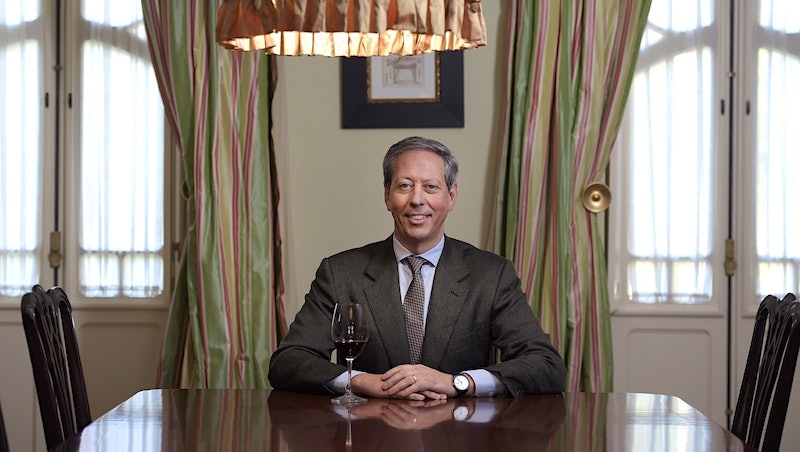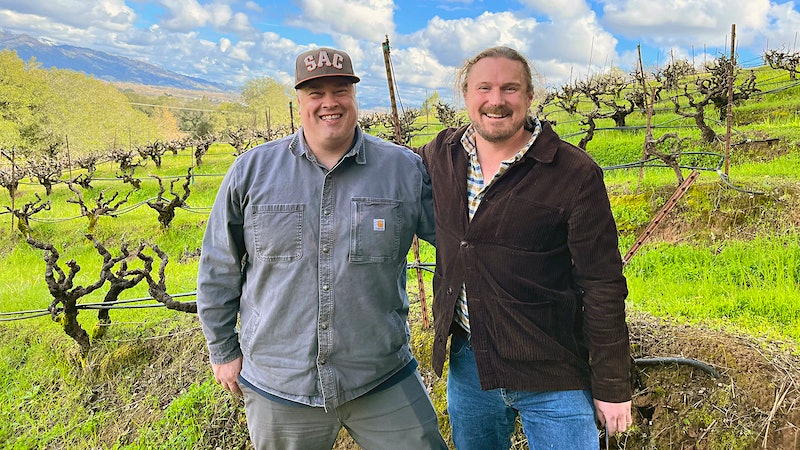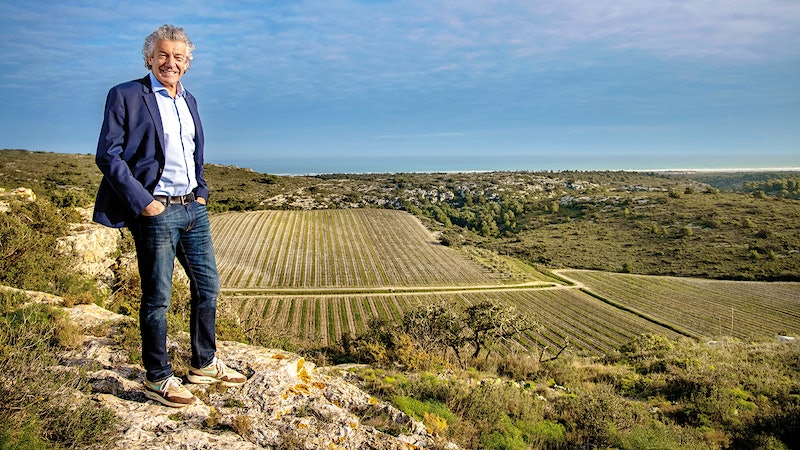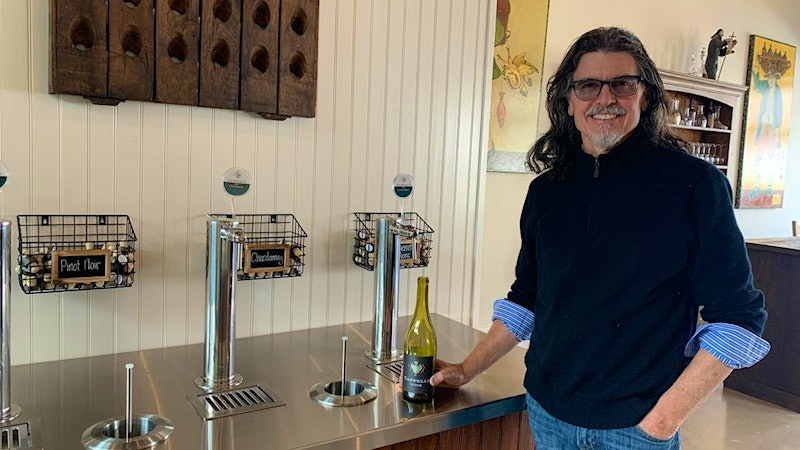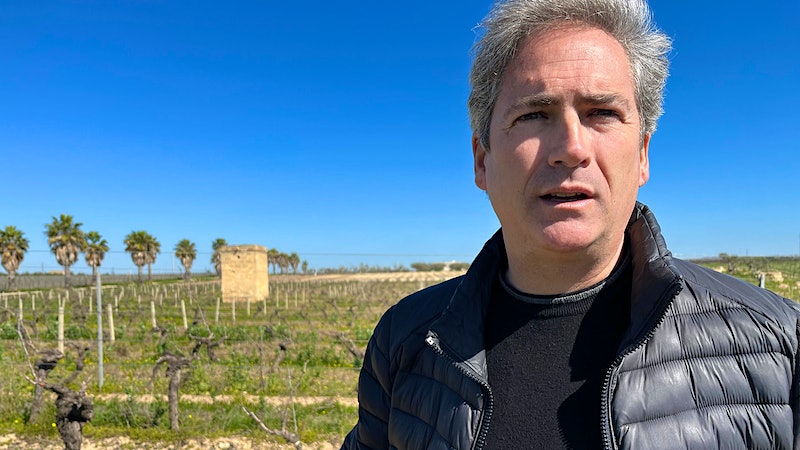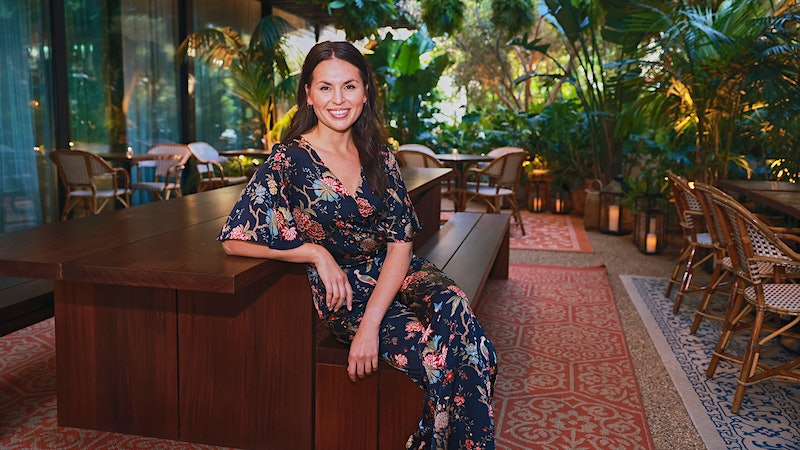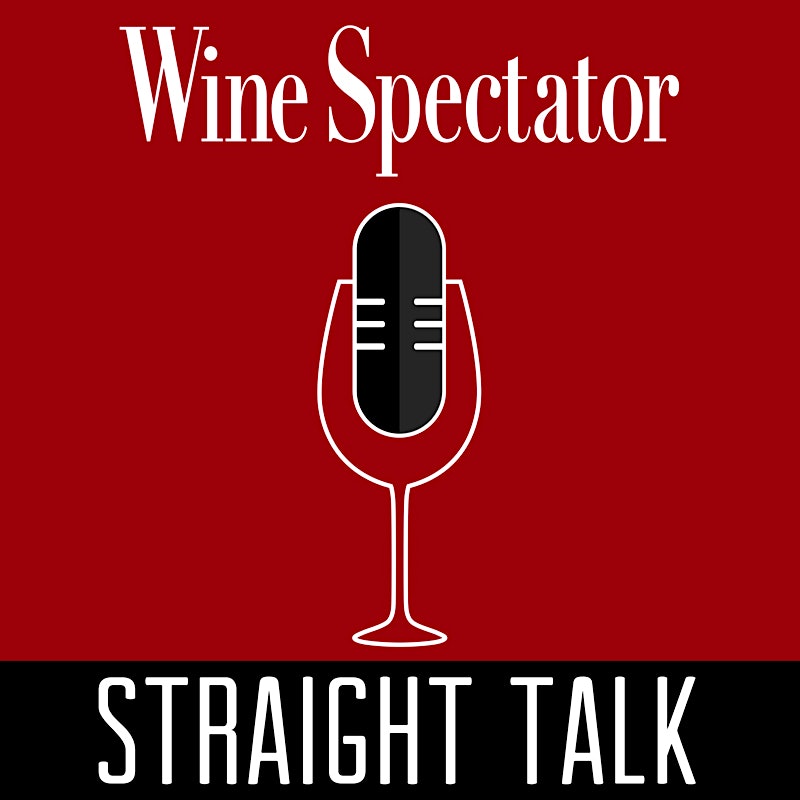When Grammy nominations were announced this week, it was no surprise that Brandi Carlile's name was mentioned often—seven times, tying her with Adele and just two behind Beyoncé for the most nods. Carlile is a gifted songwriter with a powerhouse of a voice and already has six Grammys to her name. Her most recent album, In These Silent Days, topped the Billboard Rock and Americana/Folk charts and is now a nominee for Album of the Year.
But Carlile, 41, a lifelong resident of Washington State, has a side business as a vintner. Her Washington-based winery XOBC produces predominantly Rhône-inspired wines. Grapes are sourced from multiple Washington appellations, including Horse Heaven Hills and Walla Walla Valley. The wines are made by Sean Boyd, owner and winemaker at Rotie Cellars.
The brand's primary purposes are to raise money for Carlile's nonprofit Looking Out Foundation and to bring previously ostracized or ignored communities into the world of wine. Managed by Carlile's wife, Catherine, Looking Out has organized grassroots campaigns and raised money for numerous causes, including COVID-19 relief, racial justice organizations and Doctors Without Borders.
Carlile has long been an openly out member of the LGBTQ community and has been a trailblazer in the music industry and elsewhere on LGBTQ issues. The winery maintains a line of pride-themed wine releases. XOBC wines also go on tour with the musician—XOBC co-owners Jeri and Amy Andrews park a rustic trailer and open “Camp XOBC” at each of Carlile's shows.
Wine Spectator's April Louis recently spoke with Carlile about XOBC, the winery's mission, and how wine influences her musical sensibilities. Her love for wine and the craft of winemaking were quickly apparent.
Wine Spectator: What made you want to get into the wine business?
Well, [XOBC Co-Owner] Jeri had this amazing idea for how to raise money for the Looking Out Foundation, an idea that was sort of unique and brought people together. I'm always really interested in those kinds of tributaries, little ways around my music to create pockets of people that relate to each other based on sort of common love for something and in this case it's about a love for wine. It was a desire to support the Looking Out Foundation but to do it in a more accessible way that echoes my sort of style and lifestyle.
Any wines in particular that started your wine journey?
I love Northern Rhône wines, I love Bordeaux, anything from Margaux. I love French wines in general. I sort of came up on California wines and then started to gravitate toward Washington State as my favorite producer of domestic wine.
Would you say that XOBC tends to produce wines in a Rhône style?
I think it nods to it. There are times when it doesn't. But there's something that's sort of quintessentially Washingtonian about it, too. It's not fussy, but it's complex.
What is the goal behind the Looking Out Foundation?
The Looking Out Foundation is a campaign-based foundation that I started in 2007. I started it for environmental causes. I started off with Honor the Earth and Captain Planet, which is a youth education center in Georgia. I wanted to leave myself room within the foundation to change my focus, because I do believe I'm most effective as an activist when I'm impassioned by something in the moment.
I really wanted this foundation to be just this overall outreach-based organization for people to come into, from all walks of life at all levels of income. One thing that I don't love about philanthropy is how gala-focused and classist it can be. I wanted people to know that if they wanted to come in and get their hands dirty, if they wanted to be volunteers, if they wanted to be consultants, the Looking Out Foundation is about looking outside of ourselves to other people. And so, I shifted from the environmental issues that I was passionate about when I started the foundation to the Fight the Fear campaign, which is a campaign that was responding to violence against women and queer people.
What we've been really focusing on a lot these past few years is the plight of displaced people. On the southern border, people displaced by conflict in Syria, refugee camps in Jordan and Iraq. We work with children in conflict a lot. The latest campaigns that XOBC has been supporting have been about the plight of displaced people
How do you think the wine industry can be more inclusive? How does XOBC fit into that?
Like most things, because I'm an artist, I started doing it in an abstract way. There's not an explicit dress code or a classism associated with drinking wine. But it is kind of historically tied to being a luxury item, and there's a way to do it, there's a way to hold the glass.
The way that I handle myself with an XOBC wine is a little different—we tend to drink things out of Yetis. We tend to have a more rugged farm-like approach to how we sell and market our wine. There is an element of queer inclusivity in our brand as well, in our merch and our public facing vibe. It's also really tied to the Pacific Northwest.
The wine itself is best enjoyed around a campfire. It's not compromising quality at all. It's more about the community that we're trying to bring together around the product.
Where do you see XOBC heading?
I would like to see it revolutionize at least the corner of the wine business that we're in, which is to make it accessible to people that haven't felt like they can belong. To make this wine accessible to the misfits, to make people not feel intimidated by wine and drink it.
![Brandi Carlile]](https://mshanken.imgix.net/wso/bolt/2022-11/ns_brandi111622_1600.jpg?auto=compress,format,&sharp=5&vib=20&q=70&w=320 320w,https://mshanken.imgix.net/wso/bolt/2022-11/ns_brandi111622_1600.jpg?auto=compress,format,&sharp=5&vib=20&q=70&w=320 640w,https://mshanken.imgix.net/wso/bolt/2022-11/ns_brandi111622_1600.jpg?auto=compress,format,&sharp=5&vib=20&q=70&w=384 768w,https://mshanken.imgix.net/wso/bolt/2022-11/ns_brandi111622_1600.jpg?auto=compress,format,&sharp=5&vib=20&q=70&w=828 828w)
Do you see wine as a form of art, much like music?
Oh yeah, absolutely. Especially when I talk to our winemaker, I really relate to him. There's an art form, it's abstract, no one else can understand it, and you're obsessed with the final product. And you have no idea how to properly market it. You need other people to come gather around you and help you organize yourself. Winemakers are absolutely artists through and through. There's no getting around that.
Does wine influence your music in any way?
I do tend to drink it while I'm writing. I had a shipment of XOBC wines upstairs with me in my studio, the whole time I was writing the In These Silent Days album. It's one of the only times in my life I would say I was kind of drinking alone. But I felt healthy because I wasn't really alone, I was with my dogs.
My wife is a singer-songwriter too. When I sit down at the piano, in our living room, if she senses that I'm writing or have found some chords that are new or something, she's so cool. She'll run around the house and light candles, and she always puts a glass of wine on my piano.
How has the greater wine industry responded to XOBC?
They've been incredible, honestly, just everybody has been so welcoming to us, inviting us into their establishments and letting us host tastings. We have been treated with the utmost respect, because everybody knows it's needed.




